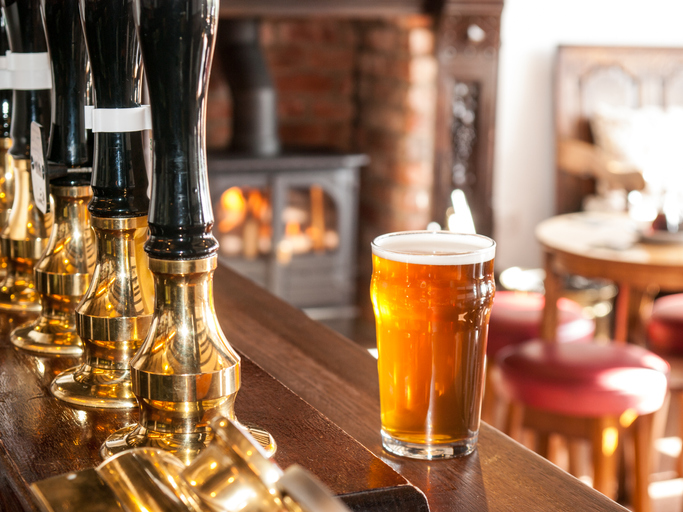ii view: Marston’s shares slump after wages hit
Growing costs and elevated debt have left shareholders needing a drink, but what about the future?
24th January 2020 12:52
by Keith Bowman from interactive investor
Growing costs and elevated debt have left shareholders needing a drink, but what about the future?

Trading for the 16 weeks to 18 January 2020
- Like-for-like sales up 1.0%
- Second-half costs to rise between £2 million and £3 million
- Completed or exchanged on £60 million of disposals year to date
- Increased full-year disposal target from £70 million to £85-90 million
Chief executive Ralph Findlay said:
"Marston's has delivered a creditable performance in a challenging market. Trading in the key Christmas fortnight was good and has remained solid since which is encouraging. Our balanced pub portfolio enables us to perform well in the context of current market dynamics and our market-leading Beer Company has continued to increase market share in both the on and the off trade in the period. We are making excellent progress on our debt reduction strategy, well ahead of the original 2023 target.
"Looking forward, greater clarity on the political agenda should positively impact consumer confidence. Overall the economic environment for the consumer looks encouraging with low unemployment and healthy wage growth providing us with increasing confidence that the market will grow in 2020."
ii round-up:
Pub and brewing group Marston’s runs an estate of around 1,400 managed and franchised outlets.
Roughly 70% of its sales come from the pub business, with brewing accounting for the rest. Brands include Hobgoblin, Marston's Pedigree, Wainwright, Ringwood, Brakspear, and Banks's.
In this latest trading update, Marston’s reported 4.5% growth in like-for-like sales during the two-week Christmas holiday period, a lift from weather impacted early December sales. For the full 16 weeks, sales rose by 1%, up from 0.8% during 2019.
Less favourably, additional second-half costs of £2-£3 million were flagged, a result of the government’s recently announced 6.2% increase in the National Minimum Wage. Marston’s employs around 14,000 people across the UK.
Group operating profit margin fell by 0.8% during 2019, hit by staff and property costs. Adjusted profit over the year declined by 3% to £101 million.
Marston’s, which has recently added Bombardier, Courage and McEwan's to its brands, also announced plans to extend its pub disposal programme to reduce debt. An additional £20 million of potential pub sales are being targeted in order to lower group debt from nearly £1.4 billion as of late September 2019.
The shares fell by more than 7% in morning trading.
ii view:
For Marston’s and rivals like Mitchells & Butlers (LSE:MAB) and Wetherspoon (J D) (LSE:JDW), events outside of management’s control, such as the weather, regularly influence sales. Sporting events, like the football World Cup, also play their part in shaping customer demand. More broadly, discounted supermarket drink sales mean more consumers drink at home, while alcohol health concerns and rising costs such as business rates have provided further headwinds.
For investors, a Brexit-hit pound and the recent takeover of Greene King give food for thought. A prospective dividend yield of over 6% (not guaranteed) and covered more than one-and-a-half times by earnings, offers attraction in this ultra-low interest rate era. But, as with all better than average returns, there are risks. Costs are rising and debt remains elevated.
Positives:
- Diverse brand portfolio
- Attractive dividend
Negatives:
- Debt of over £1 billion compared to a stock market value under £800 million
- Rising costs
The average rating of stock market analysts:
Sell
These articles are provided for information purposes only. Occasionally, an opinion about whether to buy or sell a specific investment may be provided by third parties. The content is not intended to be a personal recommendation to buy or sell any financial instrument or product, or to adopt any investment strategy as it is not provided based on an assessment of your investing knowledge and experience, your financial situation or your investment objectives. The value of your investments, and the income derived from them, may go down as well as up. You may not get back all the money that you invest. The investments referred to in this article may not be suitable for all investors, and if in doubt, an investor should seek advice from a qualified investment adviser.
Full performance can be found on the company or index summary page on the interactive investor website. Simply click on the company's or index name highlighted in the article.